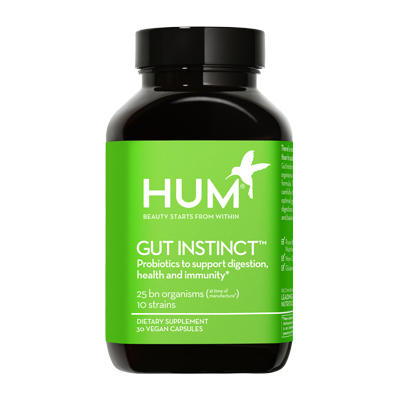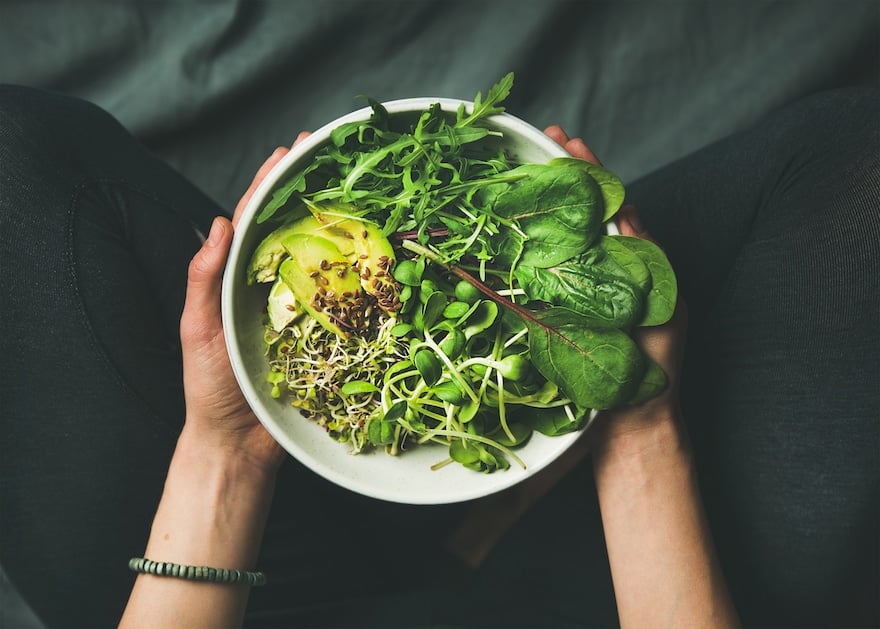Consider keeping a food diary if you commonly experience nausea after eating and aren’t sure of the cause.
What Causes Nausea After Eating?
Any number of conditions can make you sick to your stomach after a meal. These might include causes from food poisoning to illness to pregnancy.
Many causes of nausea after eating are common and can resolve on their own or be managed effectively. But for some conditions, like bacterial infections or certain diseases, you may need help from a doctor to find relief.
A closer look at your other symptoms can help pinpoint what’s causing your nausea. Once the problem is identified, your doctor can help you find a treatment that will stop you from getting sick to your stomach. Then you can enjoy your meals free of nausea.
There are many conditions that can make you nauseated after eating. Whether it’s a one-time illness, a food intolerance, or a stomach condition, determining the cause can help you avoid potential triggers and discover what to do to start feeling better.
Food allergies and intolerances
Certain foods, like shellfish, nuts, or eggs, can fool your immune system into identifying them as harmful foreign invaders. If you have a food allergy, your immune system launches a series of events that leads to the release of histamine and other chemicals when you eat one of these trigger foods.
These chemicals produce allergy symptoms, ranging from hives and mouth swelling to nausea. Other common food allergies include milk, wheat, soy, fish.
Food intolerances, unlike food allergies, are not life-threatening. But they can still cause uncomfortable symptoms like nausea, diarrhea, bloating, and other symptoms.
As much as 20 percent of the population may be affected by food intolerances. People commonly experience food sensitivities to dairy, gluten, food additives, and specific types of carbohydrates known as fermentable oligosaccharides, disaccharides, monosaccharides, and polyols (FODMAPs).
Food poisoning
According to the Centers for Disease Control and Prevention (CDC) , an estimated 1 in 6 Americans gets sick from food poisoning every year. The CDC says food poisoning can happen when:
- food is not heated to the necessary temperature
- the refrigerator is warmer than 40°F (4.4°C)
- cooking surfaces and hands are not cleaned prior to handling food
- when raw products like meat, seafood, poultry, and eggs come into contact with ready-to-eat foods.
Food poisoning symptoms like nausea, vomiting, and diarrhea typically start within 30 minutes to a few hours after you’ve eaten contaminated food. But some types of food poisoning cause symptoms that appear days or weeks later.
Stomach virus
Norovirus, which is sometimes nicknamed the “stomach flu,” infects the intestines and triggers gastrointestinal (GI) symptoms like nausea and vomiting, as well as diarrhea. Symptoms usually start 12 to 48 hours after being exposed to the virus and typically last a few days.
This stomach bug is easy to both catch and spread. People can catch the virus through contact with virus particles in the vomit or feces of an infected person. For example, you can become infected by eating food prepared by someone with the virus or prepared on a contaminated surface.
Those who have recovered may continue to spread the virus for up to 2 weeks , and people who are infected but are asymptomatic can also shed virus particles.
You can also get this virus from food prepared with or sourced from contaminated water . This typically includes fruits, vegetables, and shellfish that are consumed raw, like oysters.
Pregnancy
One of the earliest physical signs that you’re pregnant is an uneasy, queasy feeling, which often starts during the second month of your pregnancy. Changing hormone levels trigger pregnancy nausea.
About 70 percent of pregnant women experience nausea. Though its official name is “morning sickness,” nausea can strike at any time of day, including mealtimes. Sometimes the smell or taste of certain foods is enough to make your stomach roll. The feeling is temporary, and it won’t harm you or your baby.
Less commonly, some pregnant people experience a more severe form of morning sickness called hyperemesis gravidarum. This condition causes frequent vomiting and can cause bodyweight loss, dehydration, and an imbalance in the nutrients your body needs.
If you experience extreme nausea and vomiting during pregnancy, talk with your doctor or obstetrician about options for treatment.
Acid reflux
A burning feeling behind your breastbone, known as heartburn, is the hallmark symptom of gastroesophageal disease (GERD), but this condition can cause nausea, too.
GERD happens when the muscular valve between your esophagus and stomach malfunctions, allowing stomach acid to leak up into your esophagus. This disease is common and affects about 20 percent of the adult population in the Western world.
You may also experience heartburn, indigestion, a feeling of fullness, or a sour taste in the back of your mouth, among other symptoms .
GERD may occur more frequently in individuals with hiatal hernia, a condition where a part of the stomach is pushed up into the chest cavity.
Anxiety and stress
Anxiety and stress don’t only take a toll on your emotions. They can affect your physical health, too — including your digestive system.
The Anxiety and Depression Association of America lists GI issues as a symptom of generalized anxiety disorder and panic disorders. Nausea can also be a symptom of social anxiety disorder and other phobias.
According to an older but well-cited 2009 review, some studies suggest a relationship may exist between gastrointestinal (GI) symptoms and anxiety and depression.
The digestive tract and the brain are connected by nerves. This is known as the gut-brain connection. When you’re stressed, hormones and chemicals are released into the body, where, over time, they may enter the digestive tract and have a negative, inflammatory effect on your gut microbiome.
Cancer treatment
Some chemotherapy drugs cause nausea as a side effect. Nausea can occur with medications taken orally and those given through an IV.
Chemotherapy can also cause anticipatory nausea and vomiting, where an individual becomes nauseated in the presence of certain triggers. The chance of developing anticipatory nausea and vomiting can increase with the number of chemotherapy sessions you’ve experienced.
The risk for nausea and vomiting after chemotherapy can depend on the different drugs used in your treatment, in addition to other factors.
According to a 2017 review , people under the age of 50 and women also have a higher risk of becoming nauseated by chemotherapy drugs. Individuals with a history of motion sickness, low alcohol intake, and vomiting during pregnancy may also have a higher risk.
If nausea after chemotherapy is especially troublesome, talk with your doctor about your treatment options.
Gallbladder diseases
Your gallbladder is an organ that sits on the upper right side of your abdomen. It helps your body digest fats. Gallstones and other gallbladder diseases can affect your ability to digest fats. As a result, you’ll feel sick to your stomach, especially after you eat a rich, fatty meal.
If you have a gallstone, you may also feel pain as the gallstone moves through to the bile duct. This pain can range from dull to intense or involve periods of increasing pain.
Sometimes, a gallstone can temporarily block the bile duct, resulting in biliary colic. The pain tends to increase 2 hours following a meal but may also occur at other times. Nausea and vomiting can accompany pain in your abdomen.
Cholecystitis is an infection of the gallbladder that happens when the gallbladder becomes inflamed. It causes more severe symptoms, including nausea and vomiting along with abdominal pain, fever, chills, jaundice (the yellowing of the eyes and skin), and more. This condition requires immediate medical attention.
Irritable bowel syndrome (IBS)
IBS is a chronic disorder of the GI tract that involves disturbances in bowel habits and abdominal pain. Symptoms can include abdominal pain, diarrhea, constipation, and nausea. It’s the most commonly diagnosed GI condition. Nausea is a common complaint in people with IBS.
IBS is classified as one of three types :
- diarrhea-predominant (IBS-D)
- constipation-predominant (IBS-C)
- alternating both diarrhea and constipation (IBS-A)
Sometimes, it may be brought on by a viral infection. In this case, it’s considered post-infectious IBS.
According to a review of IBS research , diet modification and exercise may help relieve some of IBS symptoms. Medications may also help, and relaxation techniques, acupuncture, and cognitive-behavior therapy have been shown to be helpful for some patients.
Treatment plans for this condition depend on the individual’s specific symptoms.
Motion sickness
Some people are especially sensitive to motion sickness. If you’re among them, the motion of a moving vehicle can make you feel sick. Eating before or after your ride can make your nausea even worse.
Motion sickness is caused by motion you haven’t adapted to. This means the signals your brain receives about your body movement and the environment around you may be in conflict. Sometimes, feelings of motion sickness can persist even after you’ve stopped moving.
You may also develop motion sickness from perceived motion while you’re standing or sitting still. This can occur if you view something in motion or take part in a virtual reality experience.
Nausea caused by motion sickness typically resolves after the triggering motion stops or within 24 hours .
Having nausea once in a while after you eat isn’t cause for alarm, but you should call a doctor if it doesn’t go away within a week. Call right away if you have any of these other more serious symptoms:
- blood in your vomit or stool — it may appear bright red but can also look like black stools or coffee grounds in vomit
- chest pain
- confusion
- diarrhea that lasts for more than a few days
- extreme thirst, little urine production, weakness, or dizziness, which are signs of dehydration
- fever of over 101.5°F (38.6°C)
- intense pain in the abdomen
- rapid heartbeat
- severe vomiting or trouble keeping food down
- jaundice or yellowing in the eyes or skin
In children under age 6, call their pediatrician if:
- vomiting lasts for more than a few hours
- you notice signs of dehydration, like few or no wet diapers, no tears, or sunken cheeks
- your child is running a fever higher than 100°F (37.8°C)
- diarrhea doesn’t go away
In children over age 6, call your child’s pediatrician if:
- vomiting or diarrhea lasts for more than a day
- you notice signs of dehydration, like your child isn’t urinating or producing tears or they have sunken cheeks
- your child is running a fever of over 102°F (38.9°C)
- your child has very low energy
Look for these other symptoms, which can help pinpoint the cause of your nausea:
| Possible cause | Additional symptoms |
|---|---|
| Food allergy | hives, itching, swelling of the mouth or throat, trouble breathing, wheezing, stomach pain, diarrhea, and vomiting |
| Food poisoning or stomach virus | vomiting, watery diarrhea, cramps, and low fever |
| Gallbladder disease | pain in the upper right abdomen; vomiting, especially after eating |
| Acid reflux and GERD | a burning feeling in your chest, burping up a sour liquid, the feeling that something is in your chest, and coughing |
| IBS | cramping pain in the abdomen, diarrhea, and constipation |
| Motion sickness | vomiting, dizziness, cold sweat, and an uneasy feeling |
| Pregnancy | tender and swollen breasts, missed period, and fatigue |
| Stress or anxiety | muscle aches, fatigue, loss of sex drive, sleep problems, sadness, and irritability |
Your doctor will ask you to describe your symptoms, including when you feel nauseated, how long the feeling lasts, and what seems to trigger it.
Consider keeping a food diary if you commonly experience nausea after eating and aren’t sure of the cause.
In addition to what you ate, note the symptoms you experienced, how long they lasted, and how soon after eating they started. Keeping a diary of what you eat and how you feel afterward can help your doctor make a diagnosis.
Depending on what condition your doctor suspects, you might need tests, like:
- blood or urine tests
- a skin test to see if you have food allergies
- upper endoscopy to see whether your esophagus is swollen, which is a sign of GERD
- CT, X-ray, or ultrasound scans to check your organs for signs of disease
- colonoscopy, flexible sigmoidoscopy, or upper or lower GI series to look for problems in your GI tract
The cause of your nausea will determine how you treat it.
| Cause | Treatment |
|---|---|
| Cancer treatment | Take the anti-nausea medication your doctor prescribes. Eat smaller meals made up of bland foods, like clear broth, chicken, or oatmeal. You can also consider acupuncture. |
| Food allergy or sensitivity | Avoid the food that triggers your symptoms and read ingredient lists carefully to avoid reactions. |
| Gallbladder diseases | Take medication to dissolve gallstones or have surgery to remove your gallbladder, known as a cholecystectomy. |
| GERD or heartburn | Avoid spicy and fatty foods, lose weight, and take antacids or other medications to reduce excess stomach acid. |
| IBS | Avoid foods that bother your stomach. |
| Motion sickness | When you travel, sit in a location where you’ll feel the least amount of movement, like near the front of a train or over a wing in an airplane, and wear a motion sickness wristband or patch. |
| Pregnancy nausea | Eat bland foods, like crackers, toast, and pasta. Ginger capsules may also help nausea. |
| Stomach virus or food poisoning | Eat bland foods, suck on ice chips, and rest for a few days until you get over the infection. |
| Stress or anxiety | Talk with a therapist and try relaxation techniques, like meditation and yoga. |
Try these tips to avoid feeling sick after you eat:
- Suck on ice cubes or crushed ice.
- Avoid greasy, fried, or spicy foods.
- Eat mainly bland foods, like crackers or toast.
- Eat smaller meals more frequently, instead of three large meals that are spaced out.
- Relax and sit still after you eat to give your food time to digest.
- Eat and drink slowly.
- Serve foods cold or at room temperature if the smell of cooked food makes you feel queasy.
Your outlook will depend on what’s causing your nausea and how you treat it. Usually, nausea after you eat will get better once you address the source of the problem.
Last medically reviewed on December 9, 2021
10 Reasons You Feel Bad After Eating, And How to Stop It

We’ve all felt a little queasy after taking too many helpings of our favorite food. But if you’re always feeling nauseous after eating, there may be something else going on. Experts share 10 reasons why you may be feeling uneasy after chowing down.
Eating shouldn’t be a painful experience. Of course, we all feel a little bloated now and then after a meal, and that’s usually normal—maybe you overindulged a bit at a restaurant because that flourless chocolate cake looked too good to pass up, or you unintentionally ramped up your fiber intake when you went for a second serving of three-bean chili. In these cases, the pain is relatively fleeting and has a clear cause.
But always feeling nauseous after eating (think: bloating, gas, nausea) could be a red flag for an underlying condition or that you need to adjust your habits. Even if you think you’re eating well, a variety of factors—from what you eat to when you eat to how you eat—could be setting you up for post-meal pain.
Here, we talked to gut health experts about potential reasons you’re feeling nauseous after eating and what you can do about them.
10 Reasons You’re Feeling Nauseous After Eating

If your stomach hurts after eating, there are a few reasons it may be happening. Whether you’re experiencing bloating after eating or you feel like throwing up after eating, here are 10 potential causes.
1. You’re Not Chewing Enough.
Given all of our modern distractions, it’s no wonder we scarf down food in two or three bites. (When was the last time you actually ate lunch without scrolling Instagram or checking your email?) But swallowing your food without adequately chewing can overwhelm your stomach, potentially priming you for gas, bloating, and nausea. “If you don’t chew enough, the entire digestive process is slowed down, impaired, and likely ineffective,” says Nikki Yelton RD, LDN, CNHP, a functional medicine dietitian with a focus on gut health.
That’s because chewing is a crucial first step in the digestive process. “When you chew thoroughly, your food is exposed to saliva for longer periods of time and the [digestive] enzymes in your saliva help break down your food before you even swallow,” explains Yelton. Chewing more will put less strain on the rest of the digestive process and may even help you absorb more nutrients from the foods you eat.
Try this: Aim to chew each bite of food at least 15-25 times, suggests Yelton. “When chewing is a priority, you’ll likely notice many health benefits such as fewer feelings of bloat and indigestion after meals, regulated appetite, true feelings of fullness, and a healthier gut microbiome due to epithelial growth factor (EGF) production,” she says. (EGF is a protein released in saliva that stimulates the growth and repair of epithelial tissue, including the intestinal epithelium.)
2. You’re Stressed Out or Anxious.

Constantly asking yourself “Why do I feel nauseous after eating?” Your stress levels might be to blame. Unmanaged stress can trigger a cascade of processes that wreak havoc on the digestive system and make you feel ill after a meal.
Your gut and brain actually communicate back and forth via the gut-brain axis. So when you’re stressed and your body enters fight-or-flight mode (releasing hormones like cortisol and norepinephrine that are meant to prepare you for action), your digestion is impacted as well.
Often, this leads to changes in gastrointestinal motility, or how quickly food moves through the GI tract, which can lead to either constipation or diarrhea, according to Marvin Singh, MD, an integrative gastroenterologist and precision medicine expert. “Chronic stress can also impact the composition of the gut microbiome,” he says. “There’s been research to suggest when you have these stress chemicals released in the gut, they can contribute to non-pathogenic bacteria becoming more pathogenic. So basically, bacteria that might not be causing you any trouble could now change and become more problematic to you as a result of all the stress.”
Related Stories
The Results Are In: Users Reduced Stomach Bloating by Up to 2 Inches After A Meal when Taking HUM Nutrition’s Flatter Me
Why Does My Gas Smell So Bad? Gastroenterologists Explain.
According to Yelton, chronic exposure to stress also “directly results in changes in the brain-gut interactions, which leads to the development of GI disorders including inflammatory bowel disease (IBD), irritable bowel syndrome (IBS), and intestinal permeability, or leaky gut.”
Try this: “Adopting effective stress management techniques is essential,” says Yelton. “Start by setting boundaries—learn your limits and when to say ‘no’.” Deep breathing (when you’re feeling stressed and right before meals), evening Epsom salt baths, and practicing yoga are also great ways to release tension in the body and refocus the mind, she says.
3. Your Gut Microbiome Is Out of Balance.
Your gut microbiome is home to trillions of bacteria and other microorganisms that influence your health in important ways. When the ratio of these microbes gets thrown out of whack or bacteria starts growing where it shouldn’t (as is the case with SIBO)—which can be due to everything from stress to poor food choices to medication to underlying health conditions—you can experience a range of problematic post-meal symptoms.
“You might experience nausea, bloating, gas, burping, abdominal distension, and constipation or diarrhea—or a little of both,” says Dr. Singh. A bacterial imbalance in your gut microbiome can also set you up for leaky gut—when the gut lining becomes damaged and loosens, allowing substances that should remain within the gut to leak into the bloodstream and setting you up for gut infections, food sensitivities, and nutrient deficiencies, explains Yelton.
Leaky gut, in turn, can drive inflammation that further contributes to an imbalanced gut, causing a vicious cycle. “This results in the digestive system being chronically unhappy, hence chronic bloating every time you eat,” says Yelton.
Try this: There’s no one way to heal or balance the gut. Both Yelton and Dr. Singh recommend seeking the help of an integrative or functional medicine practitioner who can identify your unique imbalances and potential underlying conditions, and come up with a custom healing protocol. Consuming a fiber-rich diet with a variety of plant foods, getting regular physical activity, and taking a probiotic supplement with several different strains of beneficial bacteria (like HUM’s Gut Instinct) are good preventive measures to help keep your gut in balance before you develop a problem.

Gut Instinct
vegan probiotic for balanced gut health
This shelf-stable probiotic blend contains 10 strains for a healthy gut microbiome and restored gut health
315 Reviews
4. You Have GERD or Acid Reflux.
If you’re experiencing a painful burning sensation in the middle of your chest that gets worse after eating, along with nausea, burping, and a sour taste in your mouth, it could be acid reflux (a.k.a. heartburn). “Acid reflux occurs when the contents of your stomach that have not been broken down by stomach acid are pushed back up into the esophagus, and the acidity of the contents then burns the esophageal lining,” says Yelton.
“Heartburn and acid reflux after eating are actually often triggered by low stomach acid rather than too much. When levels of stomach acid are too low, the stomach and digestive tract are unable to properly digest food.” Certain foods and beverages (including alcohol), as well as overeating, may also contribute to acid reflux, adds Dr. Singh.
And when acid reflux occurs repeatedly, it turns into GERD (gastroesophageal reflux disease, or chronic acid reflux). “After too many bouts of acid reflux, it damages your esophagus,” says Yelton. “This causes dysfunction of the lower esophageal valve that separates the esophagus and stomach. Once the valve becomes damaged, the food and acid [from your stomach] are able to make their way up to your esophagus on a chronic basis.”
Try this: Try diluting one to two teaspoons of apple cider vinegar (ACV) with water and drink it before your meals, suggests Yelton. Acid reflux is associated with low stomach acid, but ACV may help increase low stomach acid levels and reduce symptoms. Consider shrinking your portion sizes or eating until you’re 80 percent full to prevent the buildup of additional pressure against your lower esophageal valve, suggests Dr. Singh.
5. You Have Food Sensitivities.

If you occasionally feel sick after eating but have some days when you feel okay, you may have a food sensitivity. Common food sensitivities include gluten, dairy, soy, nuts, shellfish, eggs, corn, and FODMAPs, as well as some additives like food dyes and artificial sweeteners.
“When a food sensitivity is present, the immune system reacts to proteins that cause the release of chemicals called mediators—such as histamine, prostaglandins, cytokines—from the white blood cells in the body,” says Yelton. “This mediator release causes inflammation, which can lead to chronic bloating. Unlike allergies, symptoms of food sensitivities can have delayed reactions and can take from 45 minutes to three days to cause symptoms like bloating.”
Try this: First, try to pay specific attention to when your symptoms show up, making note of potential triggers. For example, you might notice that you’re constantly feeling nauseous after eating sugar. If you have a strong suspicion, you can try doing a targeted elimination diet in which you cut out a few potential triggers and then reintroduce them, one by one, after a period of time and note whether that causes an uptick in symptoms, suggests Dr. Singh. Also, consider working with an integrative or functional medicine practitioner who can run food sensitivity testing, says Yelton. These tests aren’t perfect, but they are improving and can help guide you in the right direction and may confirm any food sensitivity suspicions you have.
6. You’re Not Timing Your Meals Correctly.
When you eat matters nearly as much as what you eat—and timing your meals too close together or too far apart can both cause you to feel nauseous after eating. “Eating more frequently doesn’t give your digestive system adequate time to rest, causing sluggishness and bloating,” says Yelton.
That’s because constantly snacking can interfere with something called the migrating motor complex (MMC), which is a cyclic, recurring movement in the stomach and small intestines that aids in the movement of food through the lower GI tract. When your stomach is empty, it recurs every 90-180 minutes, but chronic snacking can inhibit the MMC, slow gastric motility, and potentially contribute to constipation and cramping.
On the other hand, “waiting longer than four hours can cause a dip in blood sugar,” says Yelton. So it’s all about balance.
Try this: “Become a creature of habit and be consistent with when you eat,” says Yelton. “To regulate your blood sugar and support a healthy metabolism, eat regular-sized meals with a balance of protein, fat, and carbs every three to four hours. This allows your digestive system to take a break in between meals and promotes rest and healing for the tissues.”
Build Your Supplement Routine
7. You’re Not Eating Enough Fiber

Not eating enough fiber for a couple of meals, or even a couple of days, probably won’t cause any major problems. But if you’re avoiding roughage on the regular, everything from sluggish digestion to gut dysbiosis can occur—both of which can make you feel pretty bad after you eat.
Fiber, which is present in most whole and minimally-processed plant foods, is key for healthy digestion and bowel habits. “It absorbs water, increases the bulk of your stool, and speeds up movement through the intestine,” says Yelton. “Too little fiber can lead to constipation, which allows toxins to be reabsorbed into your bloodstream, causing inflammation, fatigue, nausea, cramping, and poor gut health.” Additionally, fiber is a food source for the friendly bacteria in your gut. Once these good gut bugs metabolize fiber, they release compounds called short-chain fatty acids (SCFAs), explains Yelton, which have impressive anti-inflammatory and antimicrobial effects that support gut health and overall health.
“Different types of fiber feed different types of bacteria,” says Yelton—so it’s important to get a variety of fibrous foods in your diet such as leafy greens, veggies, fruits, nuts, seeds, and avocados.
Try this: Include at least one fiber-rich food from a different food group with each meal throughout the day. What does this look like? “You might include strawberries in your morning smoothie, add a leafy green vegetable like spinach to your lunch, include whole grains or sweet potatoes with the skin with your dinner, and enjoy a chia seed pudding for dessert,” says Yelton.
8. You have a Thyroid Condition
It might be the last thing you’d suspect, but your thyroid could be what’s making you feel nauseous after eating. Hypothyroidism (or an underactive thyroid) often leads to poor motility, sluggish digestion, and constipation. But post-meal constipation, cramping, and bloating aren’t enough to suggest a thyroid disorder. Because of that, it’s important to pay attention to your other symptoms, too.
“If somebody comes in and says, I have constipation and my skin is really dry, I’m losing more hair than usual, I’m really low energy and fatigued, then the first question I’d ask is, Has anyone checked your TSH (thyroid-stimulating hormone) or thyroid function lately?” says Dr. Singh. “You want to address the underlying hormone problem and then the other symptoms will work themselves out. In the meantime, you can do things to support motility.”
Try this: If you don’t have a diagnosed thyroid disorder but suspect one based on the symptoms, book a doctor’s appointment ASAP. In the meantime, if you’re experiencing sluggish digestion, Dr. Singh recommends regular exercise, post-meal walks, reasonably sized meals, drinking plenty of water, and getting enough fiber in your diet to support digestion and motility.
9. Your Meals Are Too Big
This one might be obvious. Really big meals can make you feel sick—especially if you’re eating them close to bedtime. With the growing popularity of intermittent fasting diets, it’s not unreasonable to think you might go hours and hours without eating only to be a tad overzealous on the portion sizes during your eating window.
But this can cause a buildup of pressure against the lower esophageal valve that separates the esophagus and stomach, allowing stomach acid and food to push back into the esophagus, triggering acid reflux and nausea. And when you do this before bed, you’re not giving your body an opportunity to properly digest. “You’re dumping a large load into your stomach and then shutting down the power plant by sleeping,” says Dr. Singh. “Don’t be surprised if you wake up in the morning and end up burping up your dinner.”
Try this: Eat slowly so your body has time to register how full you really are, or try to stop when you’re about 80 percent full to avoid overeating, and give yourself at least two to three hours between your last meal and bedtime, suggests Dr. Singh. Another idea? Take a digestive enzyme before bigger or heavier meals so your system has extra support. HUM Nutrition’s Flatter Me contains a powerful blend of 18 digestive enzymes to help break down food and prevent bloating.






